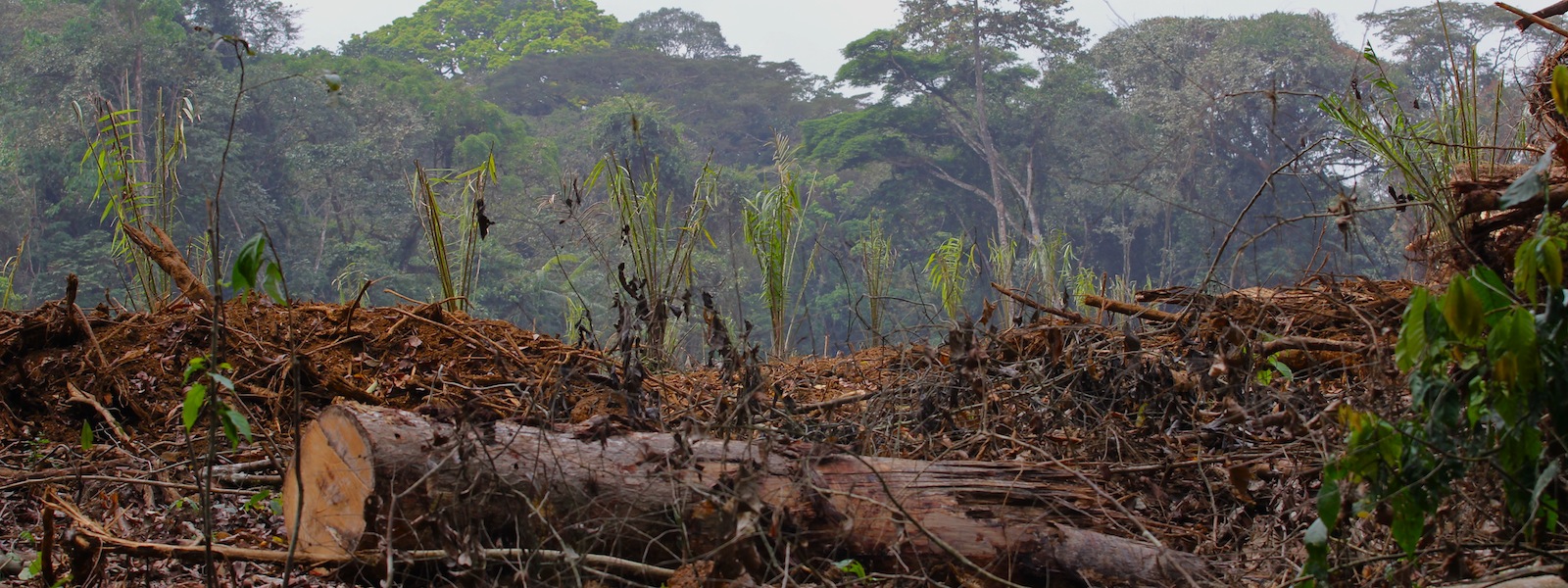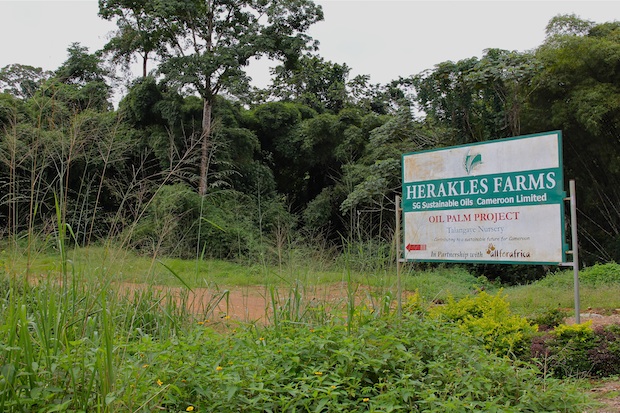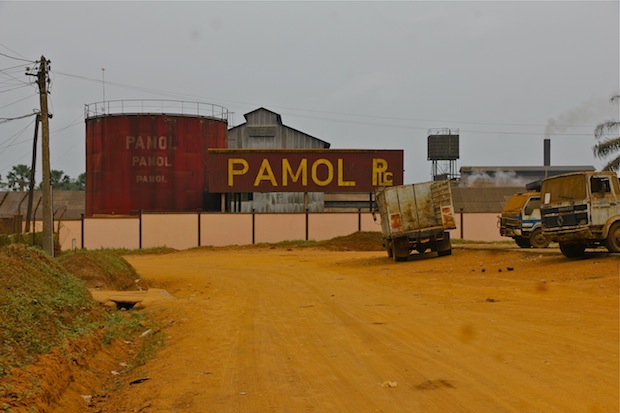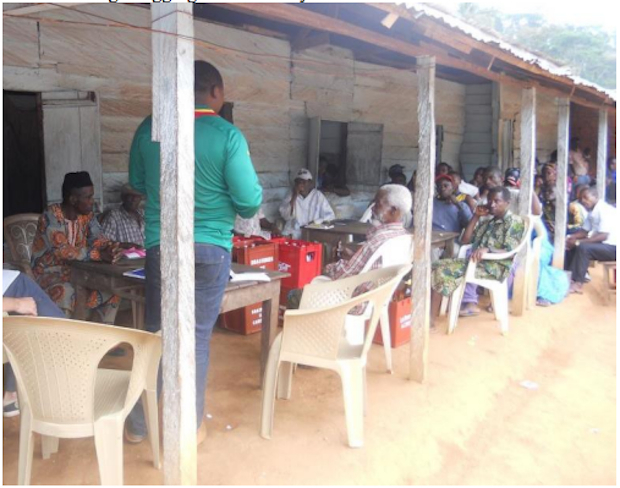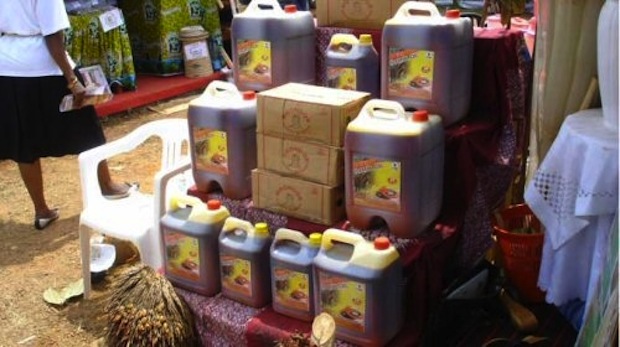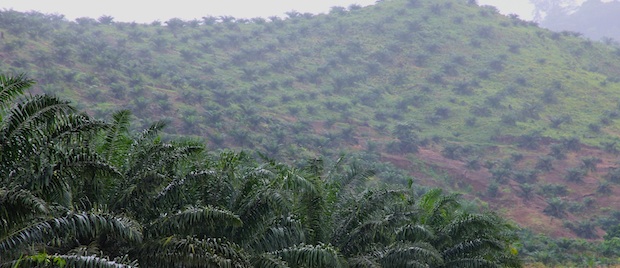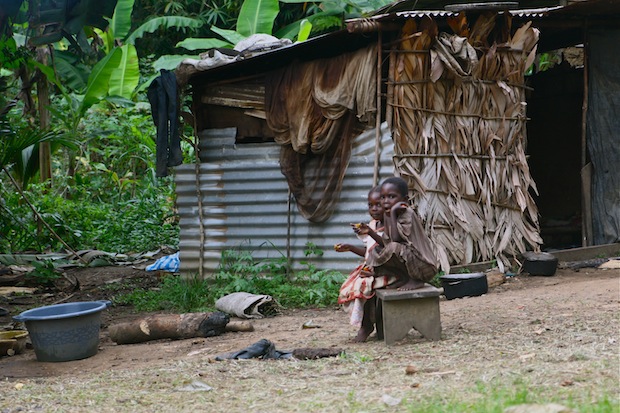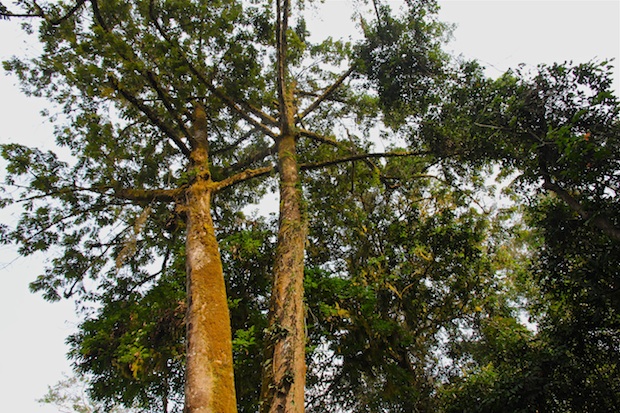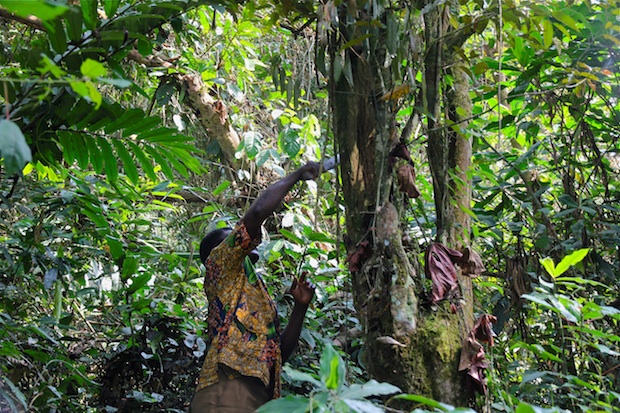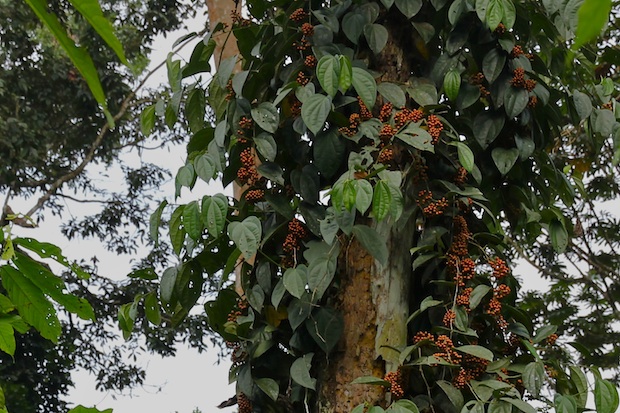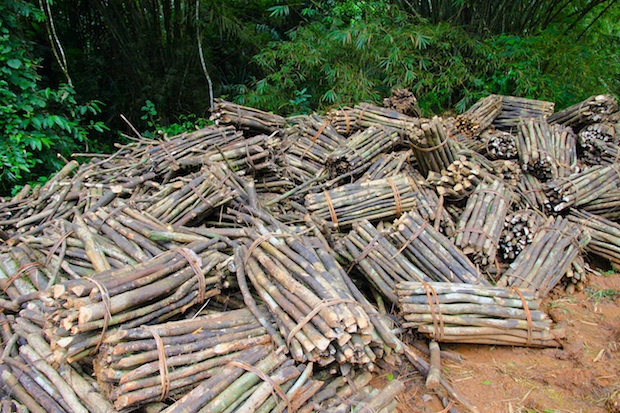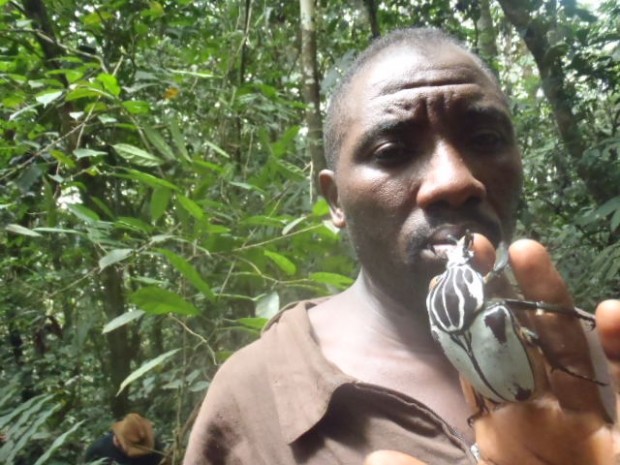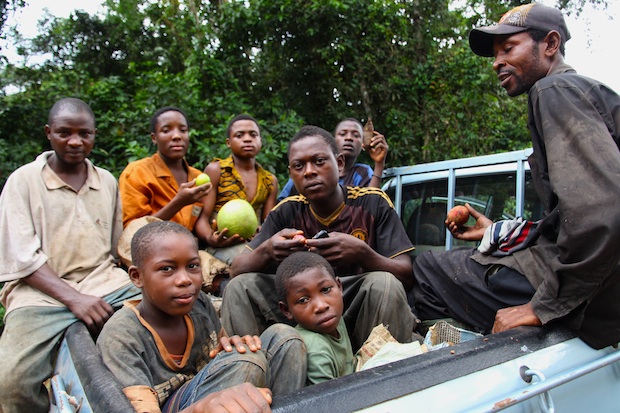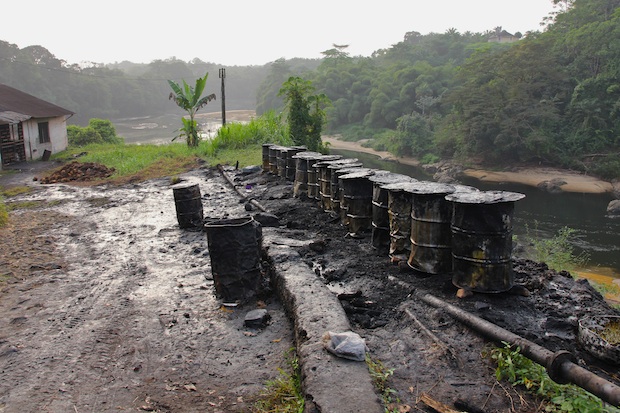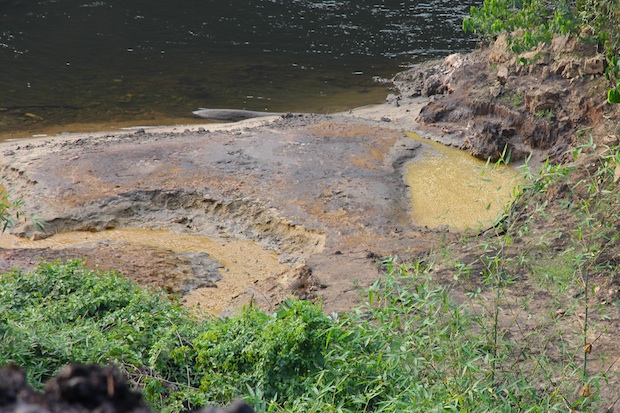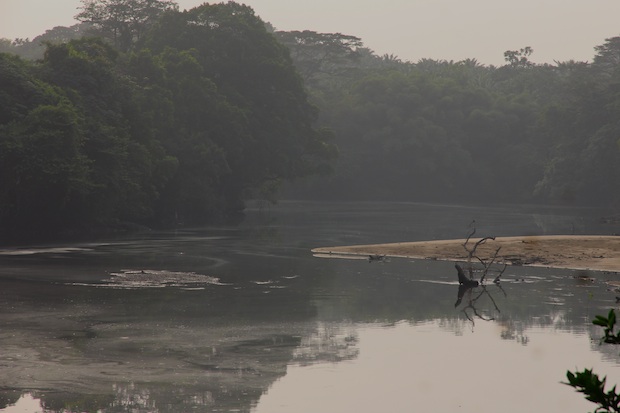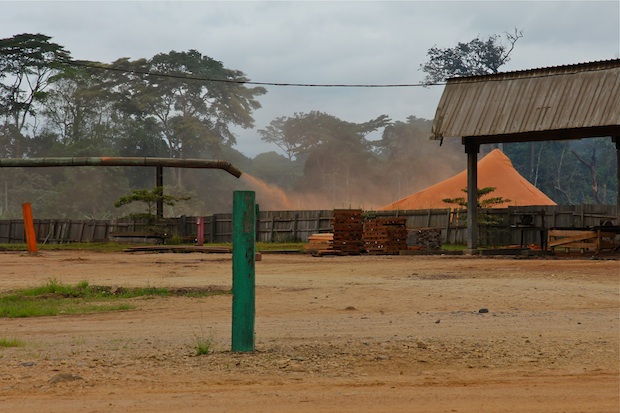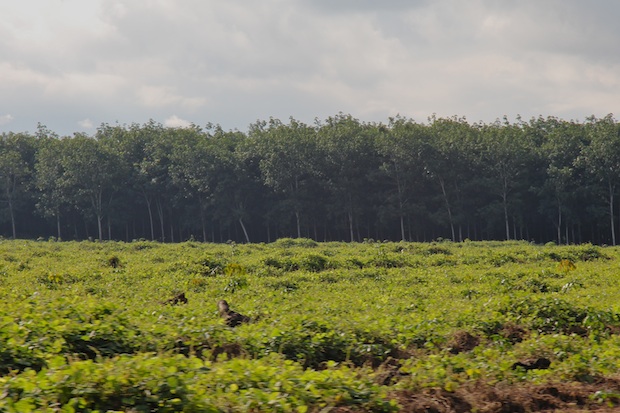
Hevea (rubber) plantations stretch for miles across parts of Cameroon. Most of the country’s large plantations were established during the colonial period — the first land grabs.
By Clemence Tabodo Martiale, translated by Jaff Napoleon Bamenjo, RELUFA
In Africa, land is considered a precious resource of divine providence. It is collectively owned and systematically inherited or handed down to branches of each family. As a God given good, land is considered inalienable by most local communities. But since the advent of colonization and the introduction of written laws regulating land in Africa, local communities have become more and more vulnerable to land deals.
In Cameroon, the decline in full customary land ownership status started during the German colonization and has worsened over time. In 1896, the imperial decree erected all the unoccupied lands as belonging to the German crown. This piece of legislation ushered in the beginning of conflicts between customary land ownership and the written state land laws in Cameroon. This resulted in the promotion of a system where individual land rights are guaranteed only by the State. According to the imperial decree of 15 June 1896, when Cameroon was still under German protectorate, unoccupied or unexploited land was termed “vacant land without masters” with the crown assuming ownership.
This approach ignored the scope of customary rights, ignoring local land uses beyond agriculture such as hunting and gathering that takes place on unoccupied lands. After independence however, a quasi-denial of the rights of local communities to full ownership of customary land was enacted. In 1974, with the creation of the national domain, land registration became the exclusive channel for land ownership, negating customary land ownership. Although land registration carries with it the advantage of facilitating the identification of land and proof of land ownership, its existence as the only mode of access to land, denies local people their customary land rights.
This situation is setting a disturbing precedent in Cameroon, where multinational companies are rushing to purchase parcels of land for their investments from governments, and coming into conflict with local communities who consider the land to be their own. The governments are ready to sell the land without the informed consent of the local communities.
One glaring example is the Herakles land concession in Ndian and Kupe Manenguba divisions of the South West region of Cameroon, where 73,000 hectares (180,386 acres) were purchased for a palm oil project. The Herakles project has generated a lot of attention, controversy and resistance from the local communities in the project area for a variety of reasons.
Not only is the contract signed between Herakles and the government of Cameroon, granting Herakles a 99 year land lease, flawed on most of the contract details, but it also fails to respect the provisions of the law on the competent authority to sign such a long term land lease; the concerned population was inadequately consulted for their approval of the project and the project deprives the population of the only available customary land left for their livelihood activities.
RELUFA and other Civil Society Organizations both locally and internationally have been actively participating in advocacy campaigns to raise issues around this project and engage and influence policy makers in taking appropriate decisions about this and similar projects. The rationale for such campaigns is not only to influence this single project, but it is geared at influencing the entire land legislation so that customary land owners and local communities are expressly recognized and protected by the law.
So far, this is not happening because the government of Cameroon seems to paradoxically believe that foreign agro industrial investment presents the best option for national development. Hence, the government is focusing on promoting land reforms that makes it easier for foreign companies to obtain land leases. This is reflected in recent moves by the government to make land expropriation for industrial investment easier. Currently, land registration requirements are difficult for local communities to meet so as to assert full ownership because of the inhibitive cost and lengthy nature of the procedures involved. Advocating for recognition of customary land ownership is our greatest ambition and the campaign will continue unabated.
In sum, land rights of local communities remain precarious in Cameroon, especially now that the rush for land by multinational industrial plantations is on the increase. We are engaged in this struggle so that future land reforms take into account the rights of indigenous and local communities and implement a coherent land policy and management of the national territory which gives customary land ownership its rightful recognition and protection. This is a battle that must be won.
Customary Land Ownership Increasingly in Jeopardy: Monitoring Trends in Cameroon originally appeared in the Joining Hands newsletter.
